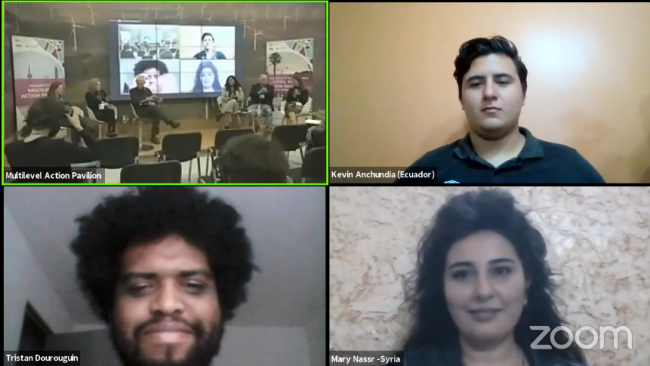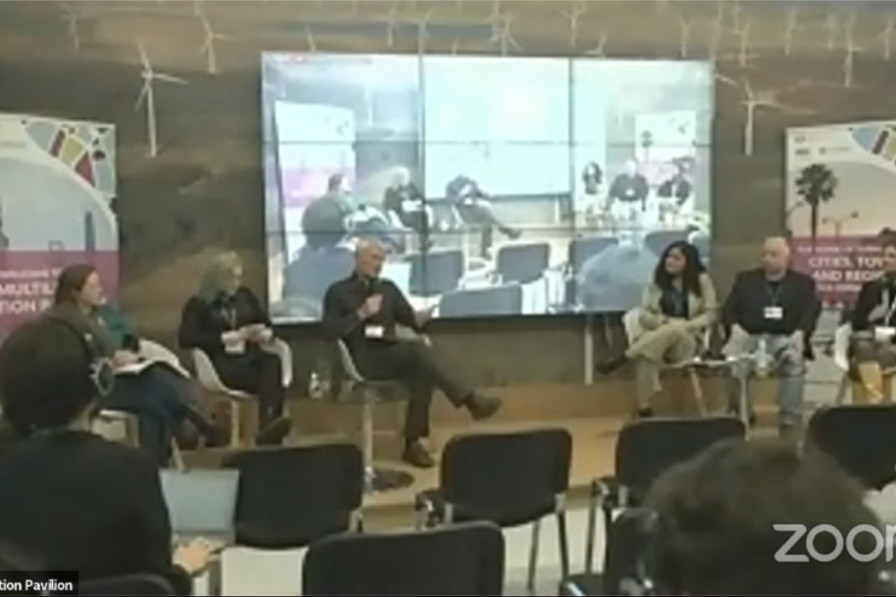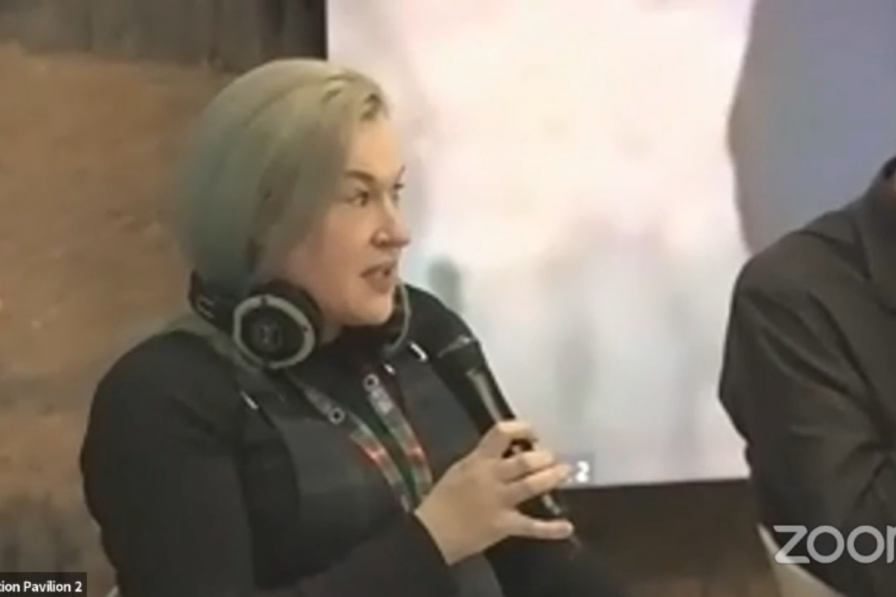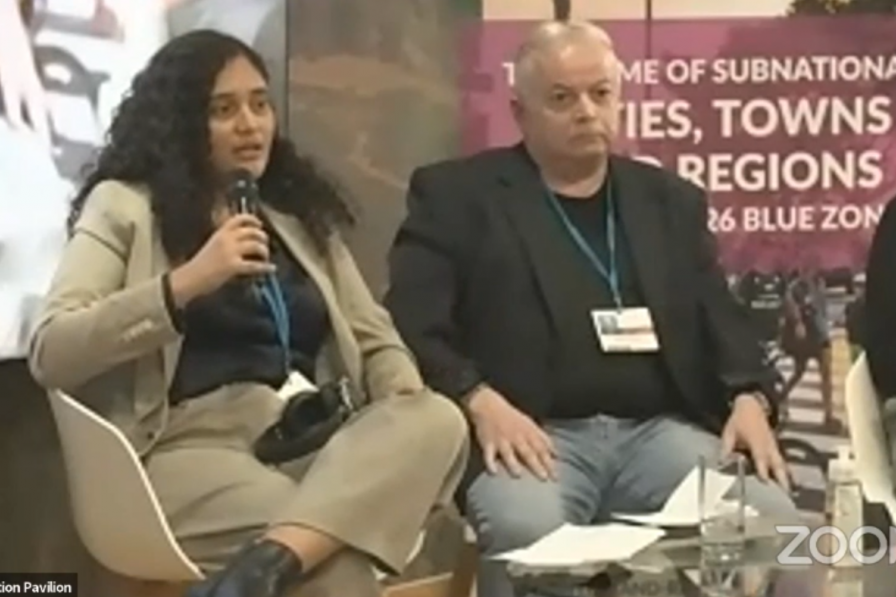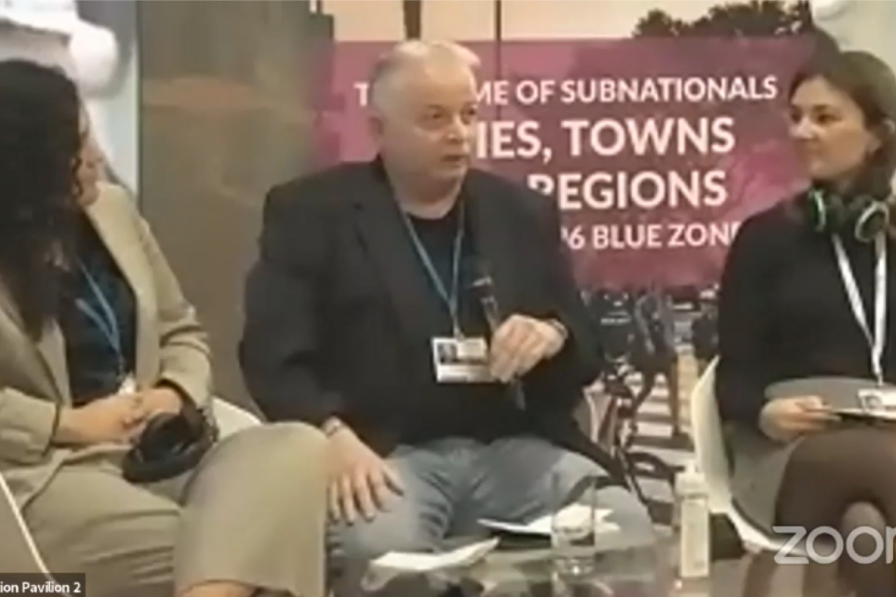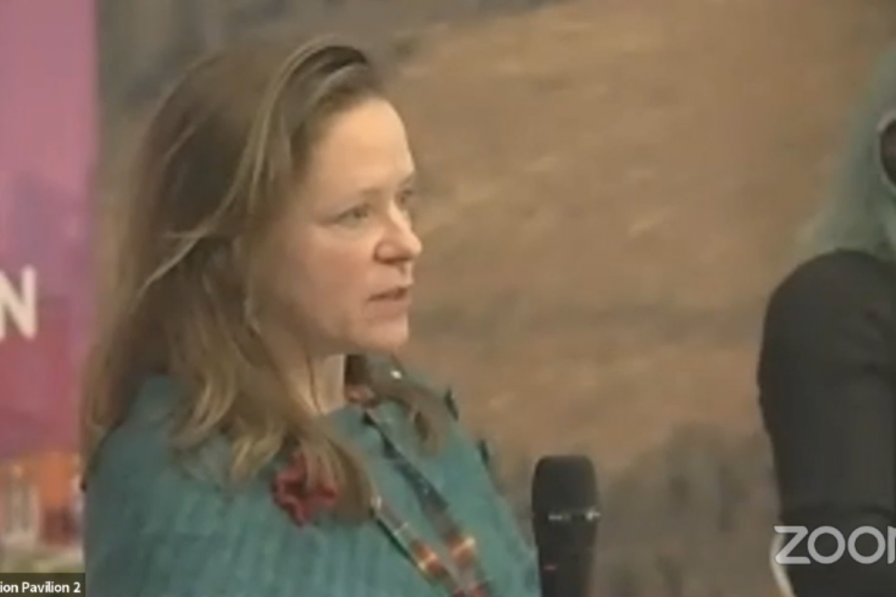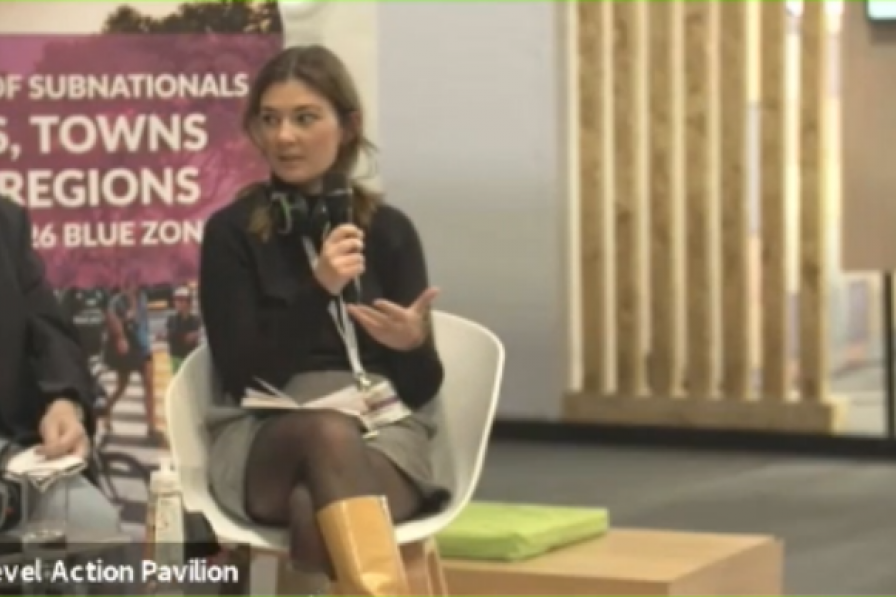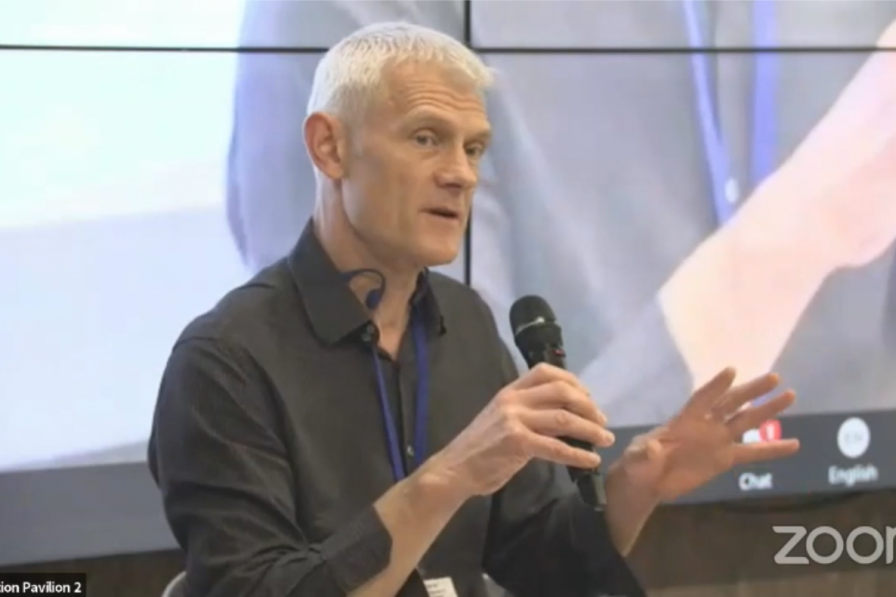We have agreed, Will You? – Citizens’ Recommendations for Fair and Effective Action on Climate Change
Citizen participation in local and global governance empowers and engages diverse stakeholders to contribute solutions to address the impacts of climate change. The creation of citizen assemblies has begun to formalize citizen inputs, producing tangible reports and declarations that are effectively influencing policy making. In this vein, a panel of representatives from three citizen climate assemblies in alignment with the COP 26 Presidency’s theme on Youth and Public Empowerment convened during the Glasgow Climate Change Conference. This hybrid session, “We have agreed, Will You? – Citizens’ Recommendations for Fair and Effective Action on Climate Change,” brought together representatives from Scotland’s Climate Assembly, the Citizens' Convention for Climate, and the Global Citizen Assembly who shared experiences and insights from producing and delivering recommendations to policymakers and others who make decisions regarding climate action.
This Multilevel Action Pavilion at COP 26 event was convened by ICLEI – Local Governments for Sustainability, in its capacity as the Focal Point for the Local Governments and Municipal Authorities (LGMA) Constituency to the UNFCCC, and Scotland’s Climate Assembly, Citizens' Convention for Climate, the Global Assembly, and the Glasgow Citizens’ Assembly on the Climate Emergency. The event highlighted:
- the value of citizen assemblies to produce recommendations on climate action;
- the need for fairness, equity, and justice in climate policy and discussions; and
- key recommendations aimed at increasing government support to improve access to information for citizens.
Moderator Kevin Anderson, University of Manchester, invited panelists to share what has inspired and driven their participation in citizen climate assemblies. Among their responses, Amandine Roggeman, Citizens’ Convention for Climate, France, reflected on both a sense of curiosity and sense of duty, saying that participation is “a way to experience your citizenship.”
Joining virtually, Kevin Anchundia Moreira, Global Assembly, Ecuador, shared how his family and community feel the impacts of climate change, driving his interest to participate and share his perspective in the Global Assembly. Shona Scheuerl, Scotland Climate Assembly, explained her lifelong fascination with the environment and interest in minimizing personal impact and supporting others to do in her community.
Joining the panel virtually, Tristan Dourouguin, Citizens’ Convention for Climate, France, said “we are the cause of climate change and so we must be the solution.” Participating in the Glasgow Citizens' Assembly on the Climate Emergency, Francesca Muñoz said that every individual in society has a role to play and can contribute to a better future.
Mary Nassr, Global Assembly, Syria, joined the discussion virtually, speaking to the diversity of representation in the Assembly as key to making a difference. Stevie Anderson, Glasgow Citizens' Assembly on the Climate Emergency, said he joined with curiosity to see how citizens could affect change.
Anderson highlighted a recommendation from the Glasgow Citizens’ Assembly on the Climate Emergency report to provide financial support to help decarbonize homes. Muñoz underscored the need for city roadmaps to map and track economic, social, and environmental solutions and impacts. Roggeman highlighted a recommendation from the Citizens' Convention for Climate to reduce emissions from transport by replacing air travel with train travel, which was subsequently applied by the French government in a current bill on climate and resilience. From the Scotland Climate Assembly report, Scheuerl and Nadine Mulgrew, Scotland Climate Assembly, outlined proposals to increase the utilization of rail transport though subsidizing improvements to infrastructure and education. Mulgrew identified the need to consider designing homes “fit for recycling and reuse” and which are prepared for climate risks, such as floods, with sufficient drainage systems.
Nassr and Moreira outlined the main messages from the People’s Declaration for the Sustainable Future of Planet Earth delivered to leaders during COP 26, including inter alia:
- the Paris Agreement is humanity’s best chance to avoid dangerous climate change;
- developed countries should assist developing countries in their climate action;
- fairness, inclusion, and participation will lay the ground for effective and equitable climate policies; and
- climate change undermines human rights.
Roggeman and Dourouguin reflected on the challenge to create strategies that meet a diverse set of community needs, citing proposals for increasing access to sustainable food and low-carbon renovations for low-income households. Scheuerl and Mulgrew shared a recommendation from the Scotland Climate Assembly report to support individuals in carbon intensive jobs with training in energy efficient careers. Exchanging experiences on the role of education, Roggeman and Scheuerl shared efforts to improve information on the impact of consumer choices by utilizing advertising.
Many panelists addressed the need for equity and justice in climate change action. Muñoz said that discussions during COP 26 “have to consider the people who are affected the most.” He stressed that citizen engagement is not an option, it is a necessity. Roggeman noted that in addition to citizen support in the development of policy, consulting with citizens on implementation measures is also important. Panelists also discussed land use, with Munoz citing the value of community gardening and Roggeman reflecting on the macro-level need to address agricultural supply chains. The panel closed with an exchange of hopes for the future, including that all people at all levels embrace a new normal of climate-friendly living.
CONTACT
Ariel Dekovic | ariel.dekovic@iclei.org
Adel Strydom | adel.strydom@iclei.org
MORE INFORMATION
To receive free coverage of global environmental events delivered to your inbox, subscribe to the ENB Update newsletter.

